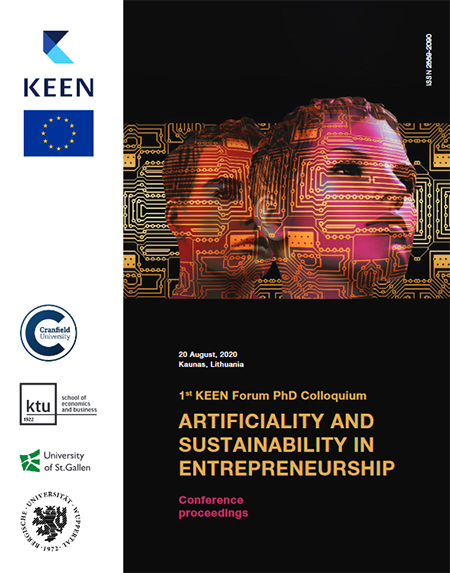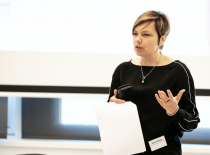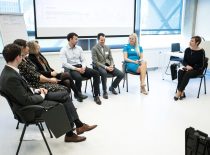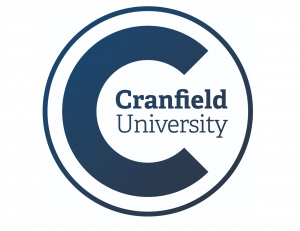The 2nd PhD KEEN Forum PhD Colloquium 2021
Topic: Relational Strategies for Sustainable Digital Entrepreneurship
We are delighted to welcome you to the 2nd PhD KEEN Forum PhD Colloquium 2021 on Relational Strategies for Sustainable Digital Entrepreneurship organised by consorcium of Kaunas University of Technology, Lithuania, Cranfield University, United Kingdom, University of Wuppertal, Germany, and University of St. Gallen, Switzerland.
The KEEN Forum PhD Colloquium offers a unique opportunity for doctoral students to present their research and receive constructive feedback on their research projects and guidance how to develop it further.
The submissions will be selected based on the double-blind review process. An abstract proposal with references should contain up to 1,000 words. The abstract might contain the following structure: title, principal topic, method, conclusions and implications. Please note that if the proposed abstract does not fully meet listed requirements, it will automatically be discarded without further notice.
Senior researchers including PhD supervisors may be co-authors, but the students must be the lead author and present the abstract at the conference.
Call for Abstracts
Digital technologies such as mobile, artificial intelligence, cloud, and the Internet of things (IoT) enable major business improvements such as customer experience, operations, or new business models. Based on Teece (2010; p. 172), a business model is defined as the “design or architecture of the value creation, delivery, and capture mechanisms” of a firm. Meanwhile, digital technologies might help the business to identify opportunities and find new ways how to create and capture value. Indeed, new business models can be developed using diverse digital technologies and businesses might be able to operate more sustainably. Although new business models can encourage sustainable consumption (White, Habib & Hardisty, 2019). Meanwhile, the Big Data, analytics and business marketing capabilities might be considered potential drivers of competitive advantage (Cao, Tian & Blankson, 2021). Hence, these new business models centered around digital technologies might drive competitive advantage (Tronvoll et al., 2020) and should be aligned with ecosystem innovation (Burström et al., 2021), but there is limited research in this domain.
Meanwhile, the academic literature has not provided a list of enabling technologies. Based on Muscio & Ciffolilli (2020), there are eight main enabling technologies:
- Advanced manufacturing solutions
- Additive Manufacturing (e.g. 3D printers connected to digital development software)
- Augmented reality
- Simulation
- Horizontal/vertical Integration
- Industrial Internet & Cloud
- Cyber-security
- Big Data and analytics
While European Commission offers six key enabling technologies involving microelectronics, nanoelectronics, nanotechnology, industrial biotechnology, advanced materials, photonics, and advanced manufacturing (Teece, 2018). Each enabling technology “can be often be disruptive to the status quo and generate very considerable economic benefit and social surplus” (Teece, 2018; p. 1369). No doubt that many innovations are amplified by digital technologies. As a result, these digital technologies or digital wave has “fundamentally altered how equipment is built and maintained and, consequently, how organizations are structured, and how they collaborate and think” (Tronvoll et al., 2020; p. 293). Despite the many opportunities of enabling technologies for businesses, there are also unsolved issues related to data ownership and its impact on businesses development.
Recently, the Covid-19 pandemic is reshaping a landcape of all businesses, large and small. Businesses are facing issues without sufficient insights on how to deal with them successfully. However, this kind of disruption may result many innovations in businesses that might change a competitive landscape and pose new challenges. It inevitably requires a better understanding how businesses are dealing with the Covid-19 pandemic and how businesses are innovating. This knowledge can provide valuable theoretical and practical insights.
The KEEN Phd Colloquium covers the following topics (not exclusive):
- Topic 1: Micro foundations of digital entrepreneurship
- Topic 2: Inter organisational collaboration, relational strategies and digital SMEs competitiveness
- Topic 3: Big data, marketing analytics and SMEs marketing capabilities
- Topic 4: Sustainable value creation, business models and digital entrepreneurship
- Topic 5: Circular economy and digital entrepreneurship
- Topic 6: Competitive dynamics and digital entrepreneurship
- Topic 7: Digital innovation and entrepreneurship ecosystems
Research projects on any of these or other topics are welcome.
When and Where?
The 2nd KEEN PhD Colloquium 2021 will be hosted virtually using an online conference platform (Zoom) on 25th August 2021. The conference structure will include keynote presentations by leading scholars, parallel track presentations, and networking session. In addition, the format of the KEEN Forum PhD Colloquium will have a session facilitator to provide supportive discussion among the doctoral students and participating researchers.
What to expect?
2nd KEEN PhD Colloquium 2021 is offered to a limited number of PhD students on the bases first come, first served.
The Conference Committee of the 2nd KEEN PhD Colloquium 2021 will include a number of accomplished entrepreneurship scholars from leading academic institutions and have a considerable experience supervising doctoral students:
- Adams Richard, University of Cranfield, UK
- Asta Pundziene, Kaunas University of Technology, Lithuania
- Charlotta Sirén, University of St. Gallen, Switzerland
- Christine K. Volkmann, University of Wuppertal, Germany
- Dietmar Grichnik, University of St. Gallen, Switzerland
- Tugrul Daim, Portland State University, USA
Why attend the 2nd KEEN PhD Colloquium?
KEEN PhD Colloquium 2021 will empower you to:
- develop presentation and critical thinking skills
- exchange knowledge and initiate discussions
- receive constructive feedback (oral and verbal) on their work and how to improve it from leading academics in a comfortable environment
- learn from and alongside one another
- listen keynote speech provided by leading scholars and be inspired
- expand your network via a virtual space enabled by Wonder.me
- win a KEEN Best abstract Award
Eligibility Criteria
Doctoral students should be in the dissertation stage of their programs and have a relatively clear idea for their dissertation research. Students are encouraged to submit their work that will be published in the conference e-proceedings. All work relevant to the listed research topics (but are not limited) is welcomed.
Submission Requirements
An abstract proposal should contain 1,000 words. Senior researchers including PhD supervisors may be co-authors, but PhD students must be the lead author and present the abstract at the conference.
Students interested in participating in the 2nd KEEN Forum PhD Colloquium are requested to submit their an extended abstract with the following information:
- An introduction to the research
- research motivations
- research question and aim,
- theoretical background
- Method used
- Expected results, and
- Theoretical and managerial contributions
Please add keywords (4-6) and submit your abstract (without author/s information) via a system by July 26, 2021.
Important! Please note that late submissions or submissions that do not follow the requirements will not be considered.
Selected submissions will be published in e-proceedings of the 2nd KEEN PhD Colloquium. Previous submission can be reviewed here: https://bit.ly/2PoaFrD
Additional information about the Colloquium
In order to make the conference a useful exchange forum, the Conference Committee will invite the limited number of participants and emphasize the quality and diversity of research topics. The submissions will be selected based on the double-blind review process.
KEEN Best Abstract Award 2021
All participants in the conference are eligible for the KEEN Best Abstract Award, and doctoral students must be the presenting author of an accepted abstract and register to attend the conference. Award will be presented during the conference. All completed application to the conference are automatically entered into the Best Abstract Award 2021 competition. Successful applicant will receive a KEEN Best Paper Award Certificate.
The selection will be organized by the conference committee and includes several criteria such as (1) originality and theoretical foundations of the research work; (2) rigour of the proposed methodology; and (3) potential contribution and impact of the proposed work to the field.
Questions
General questions about Colloquium should be directed to egle.vaiciukynaite@ktu.lt with a reference “2nd KEEN Forum PhD Colloquium 2021”.
References
Burström, T., Parida, V., Lahti, T., & Wincent, J. (2021). AI-enabled business-model innovation and transformation in industrial ecosystems: A framework, model and outline for further research. Journal of Business Research, 127, 85-95.
Cao, G., Tian, N., & Blankson, C. (2021). Big Data, Marketing Analytics, and Firm Marketing Capabilities. Journal of Computer Information Systems, 1-10.
Muscio, A., & Ciffolilli, A. (2020). What drives the capacity to integrate Industry 4.0 technologies? Evidence from European R&D projects. Economics of Innovation and New Technology, 29(2), 169-183.
Teece, D. J. (2010). Business models, business strategy and innovation. Long range planning, 43(2-3), 172-194.
Teece, D. J. (2018). Profiting from innovation in the digital economy: Enabling technologies, standards, and licensing models in the wireless world. Research Policy, 47(8), 1367-1387.
Tronvoll, B., Sklyar, A., Sörhammar, D., & Kowalkowski, C. (2020). Transformational shifts through digital servitization. Industrial Marketing Management, 89, 293-305.
White, K., Habib, R., & Hardisty, D. J. (2019). How to SHIFT consumer behaviors to be more sustainable: A literature review and guiding framework. Journal of Marketing, 83(3), 22-49.













